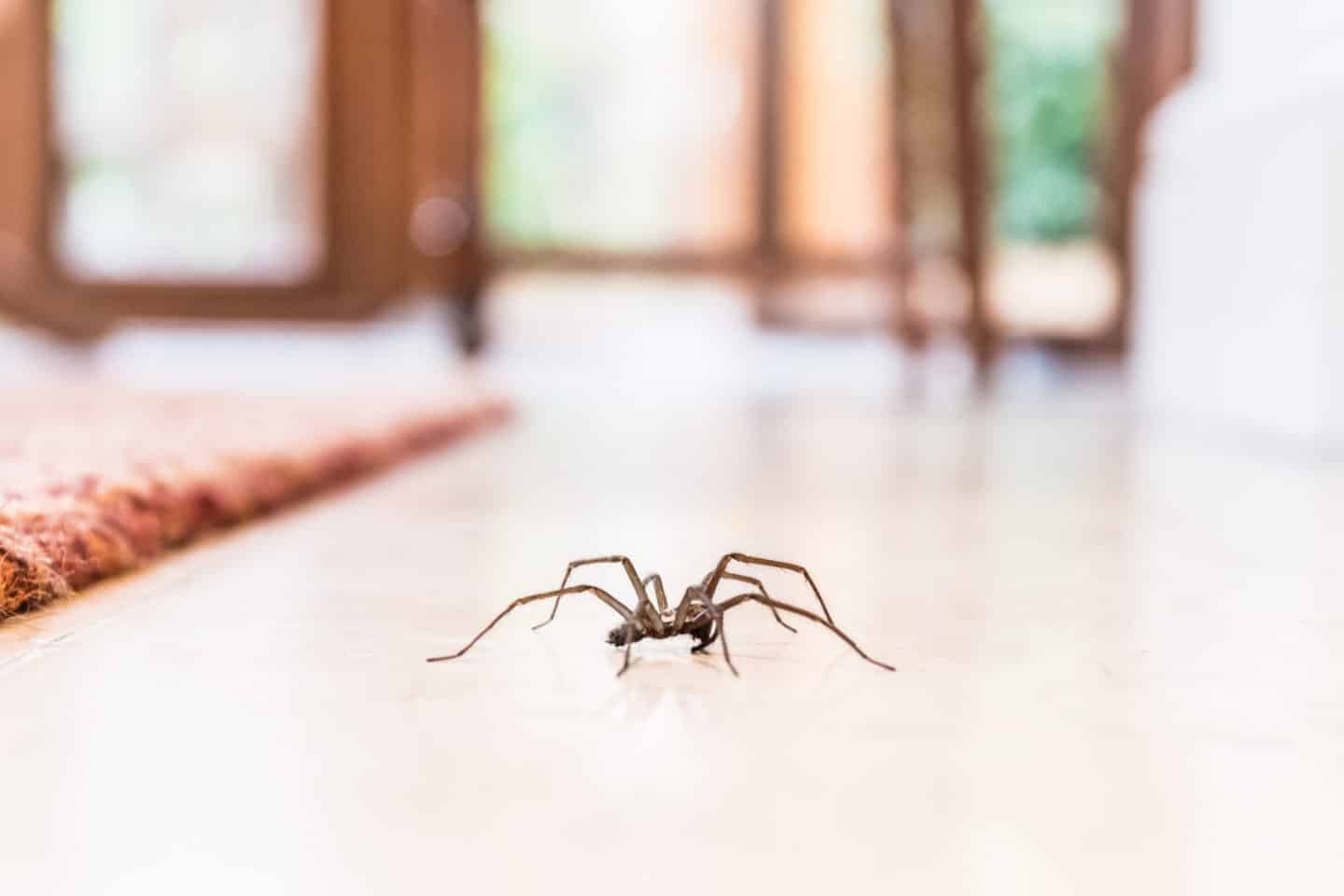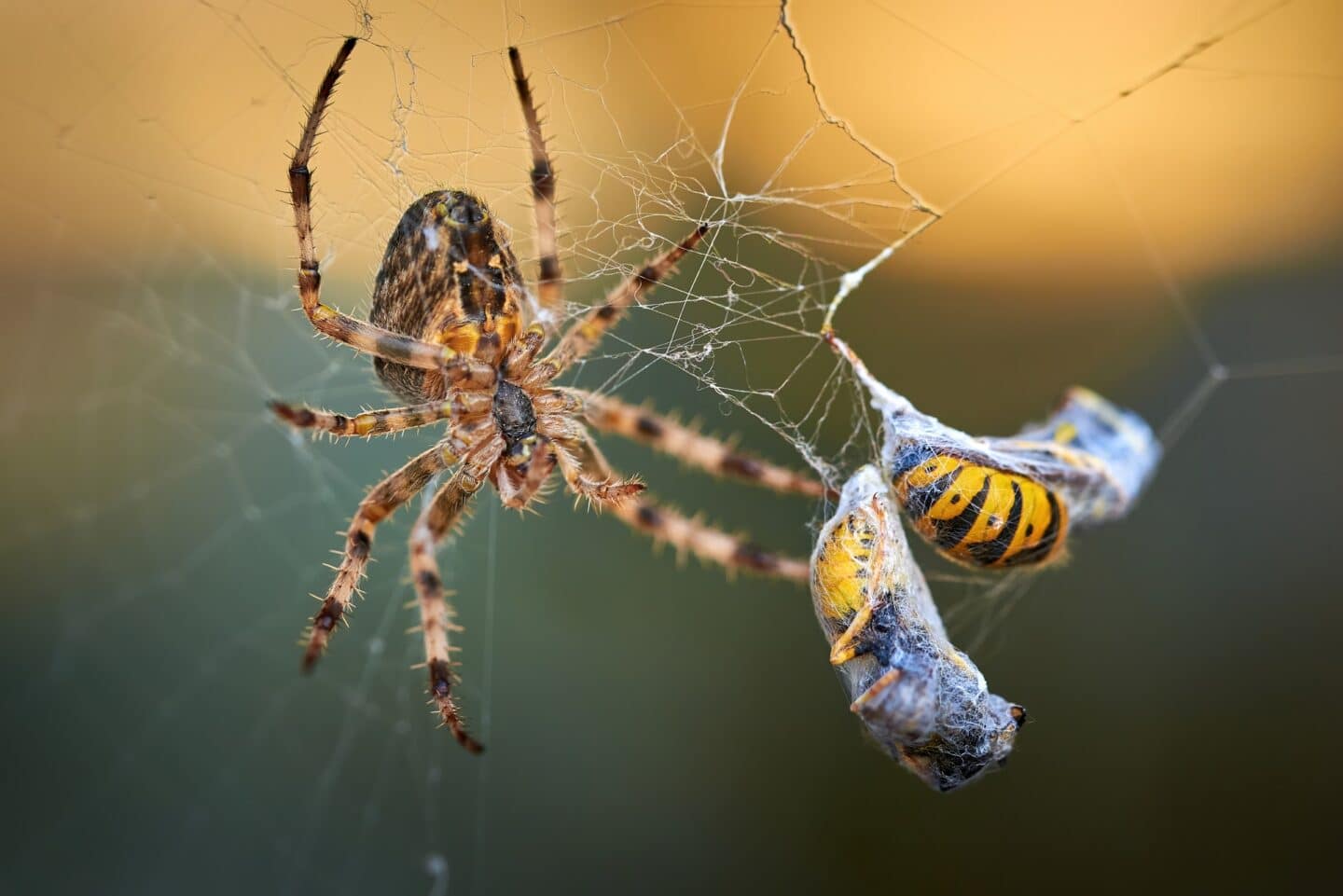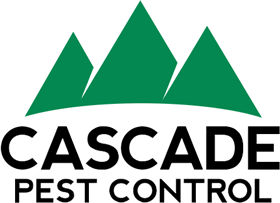Author: Kurt Treftz, Cascade Pest Control

What & How Do Spiders Eat?
Knowing what and how spiders eat can help us keep them out of our homes and businesses… and out of our nightmares. If you are arachnophobic (having a fear of spiders), you are not alone. An estimated 1 in 3 women and 1 in 4 men express a fear of these eight-legged creatures. So, learning how to manage them so that chance encounters are rare seems like a good plan, eh?
Washington state is home to lots of different spider species. Most are benign or even beneficial, but we do share space with the black widow and yellow sac spiders which are not at all friendly. But even being told that spiders are helpful, doesn’t always give us a warm heart toward them.
What Spiders Eat?
The interesting thing about spiders is that they are hunters, so they typically follow their prey. That means if you are seeing a lot of spiders in your house, you might actually have an insect problem more than a spider problem.
Spiders prey mostly on mosquitoes, flies, moths, and sometimes other spiders. Additionally, they might feast on worms, snails, and other small vertebrates, but that likely isn’t in your home. A few unusual spiders, not found in Washington, have wildly different palates. One type eats primarily leaves of acacia tree in Central America and another builds a web underwater and consumes fish.
However, we can be very thankful that spiders snack on these bugs. A study by the Swedish Lund University estimates that spiders eat an annual 800 million metric tons of insects each year. That’s a lot of bugs!
How Do Spiders Eat?
The telltale sign of most spiders is their web, woven into the corners of our closets and storage spaces or clinging to out-of-reach nooks. And those webs are what they use to catch their prey. Spinning webs allows opportunistic spiders to let their prey wander to them. Once they are caught in the web, these passive hunters can enjoy dinner at their leisure.

Other spiders don’t spin webs, but instead, hunt their prey. These stealth hunters may lie in wait outside their burrow and then jump or pounce on their prey. Other spiders wait in likely areas and then run down their prey.
Once they have captured their dinner, spiders need to eat it. And they do that with an interesting phenomenon called external digestion. That’s right, spiders begin the digestion of their food outside their bodies. Spiders inject or spit their digestive juices into their prey to break down soft tissue that is then sucked up by the spider. Soup, it’s what’s for dinner.
Although spiders can survive as long as a few weeks without food, they do prefer to eat more frequently, as much as 4 times a day. They get most of their water from their food, but they will still stay close to water sources as they must consume more water if they aren’t getting adequate food.
Preventing Spiders
Like most pests in our homes, spiders can be discouraged from making themselves at home. Keep your home clean, yard de-cluttered, assess points secured, and eliminate food sources. If you have spiders, check whether you have another pest problem, as well, since the spiders might be following their prey (their food source!).
If you need help getting on top of a spider problem, call the experts at Cascade Pest Control 888-989-8979
